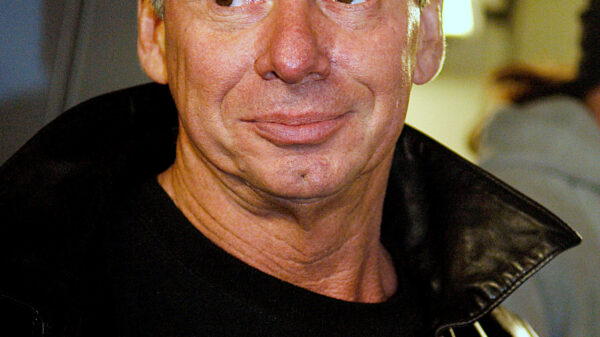Roar writer Theodore Nash discusses the social implications of Netflix’s TV series “Squid Game”.
“Squid Game”: The show that has received so much hype, bright institutional fashion and literal litres of fake blood. Lead Gi-Hun’s (Lee Jung-Jae) frequent encounters with problematically violent debt collectors push him to participate in an apprentice-cum-“Hunger Games”-esque TV show for a few problematic, rich Americans. After six mentally (and physically) anguishing games, (in which 454 fellow participants are brutally murdered) he wins a vast sum of money, returns home to his dead mother and spirals into a state of depression.
The participants (read: inmates), while they were free to go as a result of a majority vote leave (sound familiar?), are held by the promise of winning and the dread of returning home. They are inmates of their own desire. Think of the husband and wife, who re-entered together, knowing full-well that one – or both – of them would die in the process. The lack of choice is seemingly unnoticed by Front Man, who is so convinced by the social value the game, as he publicly executes the staff who hinted to Player 111 (the doctor) what the next game was. Mr Man even goes as far as to say “everyone deserves an equal chance”, implying that the game is reassuringly charitable to its inmates, presumably justifying the deaths in his mind.
CLASSISM, RACISM AND PLAYING GOD
But of course, we can’t forget the big twist: Il-Nam, also known as ‘the old man’ (Oh Yeong-Soo) turns out to not only be The Host, but also the creator of the entire charade. This seemingly Zeusian character juxtaposes the wealth-hungry inmates, partaking in the game purely for his own thrill. He bets with Gi-Hun whether the homeless person seven floors down will survive the night, on his very deathbed. This is a stark reminder that those of lower social classes are looked down upon by those in higher social classes, in both the fictional and real world. But it doesn’t just stop at classism; there are some racist implications dotted throughout the series. The (majority) white, English-speaking VIPs, in contrast to the fully Korean-speaking staff and inmates, further accentuate the divide. This consequently allows the VIPs to maintain an emotional high ground, so as to not be impacted by the demise of their favourite players e.g. Player 96. The illusion is sustained to such a level that the deaths of inmates result in laughter, and one VIP even tries to coerce the waiter (undercover police) Joon-Ho (Wi Ha-Joon) into satisfying his sexual desires. These rich caucasian men treat the Koreans as gladiators (or even furniture) rather than human beings – sounds rather familiar.
The sentiment continues as you look into it deeper. Notice how all the games played by the inmates are children’s games, with a violent (and often gory) twist, observed as entertainment by people with superiority complexes (see Joon-Ho’s VIP whiskey and sexual encounter). It almost reminds me of old primary-school friends, burning ants into the ground with a magnifying glass, purely for their own amusement. These men are so wooed by their bank balances, yet so bored of all things luxury, that the only thing left to amuse them is by playing God. Apart from Il Nam, the richest of them all, who does not even appear to be entertained by this, steps into his own creation for his last hurrah and lives as a lowly man. It’s almost classical.
MORALITY AND FRIED CHICKEN
Is the game a charity or a manipulative abattoir with limited seats? That depends on your personal morals. 187 out of 201 inmates returned to play (93%), having each witnessed first-hand the true meaning of eliminated. They knew what they were doing when they returned, displaying their pitiful need for an improvement in their ways of life.
Despite winning the jackpot, Gi-Hun appears to be psychologically and emotionally traumatised by the events, as he dramatically turns around in the last scene – presumably for some sort of revenge. From the beginning, he faces constant misfortune: he loses his money after his gambling success (although he seems as surprised as we are), hence being unable to afford fried chicken for his daughter. To his credit, he does turn down the money from his daughter’s stepfather in exchange for “leaving my [his] daughter aloneâ€. However, he is so intent on reaching the jackpot that he is not there to care for his mother who dies, having not received urgent hospital care. Sang-woo kills himself rather than face up to his financial failures in front of his mother. And after a year of not spending any money, Gi-Hun has a splurge on the world’s most expensive suitcase, a new child, and new hair (thanks to Dong-Hyuk we really know that money doesn’t buy taste – it’s not like the red hair could be symbolic of his gain of agency e.g. red-clad prison guards). Jokes aside, it is clear what Hwang Dong-Hyuk, writer of “Squid Game”, believes: the endless, blind pursuit of wealth doesn’t result in the infinite satisfaction that Paris Hilton would have you believe.
Admittedly there were a fair few bloodbaths in this TV show, but the topics discussed and implied were certainly far from the surface. One thing’s for sure, Haydn will never sound the same.
*For clarification, I watched this series with the original Korean audio and English subtitles. I understand there are potentially, significantly different syntax and meanings as a result of their translation and space constraint. However, as this is the only version of Squid Game I have experienced, I thus refer solely to it in this article.
Comment Writer for ROAR News. 2nd-Year Electronic Engineering Student. Director of Photography for Apology Accepted (out Autumn 2021).

















